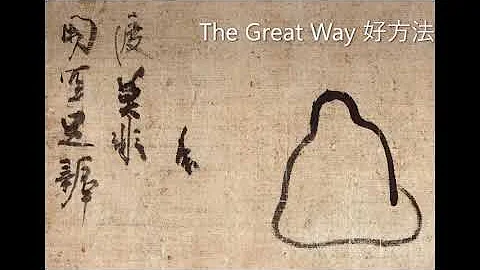Buddha said: There are eight sufferings in life: birth, old age, illness and death, separation from love, long-term resentment, not being able to get what you want, and not being able to let go. Sometimes it is actually good to read Buddhist books. Back then, my mother had a good friend who was a Buddhist and often went to temples. He brought back several Buddhism related books, all of which were Buddhist stories written by masters. My mother didn’t like to read, so she put the book on my desk. I thought the cover was good, so I flipped through it and found that the Buddhist stories were really unique.
The book excerpt shared today is from "There is Nothing in Life: The Life Wisdom of Master Hongyi" published by United Press , translated by Song Mo.

Looking at the title of the book, some friends may say: Huh? chicken soup? This must be chicken soup! When it comes to the issue of "chicken soup", some books with titles are indeed as the name suggests. They are really "chicken soup". Reading them has the feeling of paralyzing the nervous system. You will give up decisively after reading very little. Anyway, this kind of books I bought a lot of books back then, but the title cannot be a complete summary. Some books were really misunderstood by the title.
The book "Nothing in Life Can't Let Go" uses "Farewell to Proverbs" by Master Hongyi . It combines relevant Buddhist stories and real-life examples to tell the true meaning of life. The language is simple and down-to-earth, and it is not boring to read. It's also a bit interesting and full of philosophical knowledge.
Master Hongyi, formerly known as Li Shutong , is a famous musician, art educator, calligrapher, and drama activist in China. He is one of the pioneers of Chinese drama. After returning from studying in Japan, he served as a teacher and editor. Later he was ordained as a monk, with the Buddhist name Yanyin and the nickname Hongyi. He was also the teacher of Feng Zikai, an essayist who pioneered the modern comics industry in my country. (Note: If you want to know more about the life of Master Hongyi, you can go and read it. The Master of Book Excerpts wants to share with you the classic quotations in the book, so I won’t give a personal introduction here.)
Book excerpts:
1. It’s like We hold too many things in our hands, and if we don't know how to put them down, they will become heavier and heavier. And if we encounter something we like more, we find that we can no longer spare our hands to accept it.
2. It is normal for people to have desires. Life is boring if there is no goal to pursue. Everyone can pursue normal desires through normal means, thus improving the quality of our lives. But dissatisfaction is a human nature, and we will never feel that we have too many desires.
3. If you are eager for success in doing things, you wish you could become fat in one bite. If you cannot see the effect of the matter in the short term, you will give up halfway and leave it alone. This is a sign of impatience.
4. "Content" means that you are "not satisfied" with how much someone gives you, but you can accept it; "knowledge" means that when you look at it to a certain extent, you reach out to block it and say: I don't want it anymore. "Satisfaction" comes from people, and "knowledge" comes from oneself. "Being contented" means not being greedy, and "knowing to stop" is not following along.
5. Eating from the bowl and looking at the pot, but in the process of pursuit, they have to endure the pain of not getting and losing, not to mention the pain they suffer every day for material wealth that exceeds human needs. The pain and tiredness.
6. People who retaliate against their enemies with hatred may have done less than 1% of the harm to their enemies, but they themselves have done 99% of the harm through self-punishment.
7. "The pure will become pure by itself, and the turbid will become turbid by itself." Rumors are most afraid of the truth. At the right time, we present the facts and open the door, and rumors will naturally have nowhere to hide.
8. If one day, when you have a dispute with your lover, and you let him win, what can he win? So-called losing, what did you lose? Winning and losing are just words. Most of our lives are wasted in the entanglement of language.
9. Desire is like a chain, one holding the other and never being satisfied.Desire is a part of human nature and cannot be eliminated. All we can do is to reasonably control our desires, prune our ambitions, and prevent ourselves from being slaves to desires.
10. It is not okay to be a person and do things without caring about other people's feelings, but if you care too much about other people's attitudes, you will lose yourself. The most important thing in life is to be yourself, not to be someone else's yes-man.
11. The courageous spirit of "introspection" is not something ordinary people can achieve. We ordinary people, let alone self-examination, even know that we are wrong, but we still have to be tough.
12. Even if you are a "know-it-all", don't gossip about other people, because many things will deteriorate once people pass them on. If a person always talks about other people's privacy, and what he says will always surprise you. Stay away from such people, otherwise, you will be the next one to be betrayed.
13. Being quick-tongued will only make enemies for yourself. The principle of interpersonal communication should be to always avoid direct conflicts with others.
14. Worrying about gains and losses is the stupidest behavior. A person who worries about gains and losses is like holding a stove in summer or an ice cube in winter. He seems to have it, but in fact, he is always suffering from the pain of fear of loss.
15. Modesty is not a show. It does not mean that showing yourself low-key in front of others is modesty. Humility is a state of mind, which is a heartfelt belief that one has not done enough; a heartfelt willingness to ask for advice and learn from others so that one can continuously improve.





















